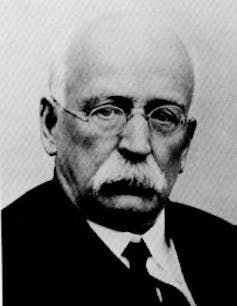Silicon Valley investors want to create a new city – is 'California Forever’ a utopian dream or just smart business?
- Written by The Conversation

He was, said George Bernard Shaw, “one of those heroic simpletons who do big things whilst our prominent worldlings are explaining why they are Utopian and impossible”.
The celebrated playwright was referring to the ideas of Ebenezer Howard, the creative force behind the idea of “garden cities” in the late 19th and early 20th centuries; new urban centres that Howard argued would have the best of town and country, but without the problems.
There’s a reminder of that somewhat backhanded compliment in the recent news of a Silicon Valley consortium named Flannery Associates buying land with a view to creating a new city in northern California’s Solano County. The controversial project is named after the investment vehicle’s parent company, California Forever.
The parallels between contemporary utopian thinking and Howard’s ideas from more than a century ago are readily apparent. The notion of something like California Forever may appear cutting edge, but it is part of the historical foundations of current planning systems.
Indeed, the science-fiction writer H.G. Wells – a futurist whose own ideas would resonate with many in Silicon Valley – was so attracted to Howard’s ideas that he joined the Garden City Association to support their creation.
Garden city visions
Any kind of new city model tends to reflect the politics of its founders. The vision and plans stretch beyond the built form to picture a preferred lifestyle, and interactions with nature and each other.
The artist’s renderings accompanying the California Forever project depict an attractive, harmonious landscape familiar to utopian thinking: plentiful parks, open spaces and sustainable energy.
Read more: What is a garden city – and why is money being spent on building them?
It encapsulates a politics of urban living that also emphasises the need to recast our relationships with nature. As such, these ideas also involve a large dose of social engineering. They are not just about creating a new built environment, they envision a new kind of society that’s better than the current one.
But the garden cities that were eventually developed were a far cry from Howard’s initial vision. In fact, his ideas from over a hundred years ago make those from Silicon Valley look distinctly dated.
For Howard, it was as much about social reform and organisation as city planning. He advocated for local production and relatively self-contained settlements to reduce the need to travel, as well as innovative ways of treating waste that echo current circular economy thinking.
Planning and profit
Even less like the investment logic behind California Forever, Howard also imagined a city that could challenge some of the precepts of capitalism.
Given the significant deprivation and social divide between haves and have-nots, he advocated that land in garden cities could be organised cooperatively to share wealth and reduce poverty.
Read more: How should we design cities to make the most of urban ecosystems?
The need to attract investors was one of the reasons Howard’s ambitious politics eroded. To purchase land on that scale requires significant capital, and the providers of that capital would no doubt be looking for a return.
Should California Forever materialise, history would caution us that there may be a similar gap between rhetoric and reality. While Howard’s ideas were partially implemented in places like Letchworth, the focus was more on the built environment than social justice or sustainability.
Howard moved into the new city, but his influence was marginalised by the need to accommodate shareholder interests.
While we don’t know how California Forever has been pitched to investors, it’s a fair assumption it is also shaped by the profit motive: buying cheaper agricultural land, rezoning for housing and development, drawing in state funding for infrastructure, and seeing the land rise in value.
While the images appear sustainable, long-distance commuting may be a problem given the nature of the labour market in California, as might expectations of genuine community involvement in the project. Utopian schemes have long been critiqued for their tendency towards authoritarianism – a charge not unfamiliar to the tech sector in recent times.
Read more: How do we get urban density 'just right'? The Goldilocks quest for the 'missing middle'
Howard’s ideas were also criticised as anti-urban. Shouldn’t we seek to improve existing cities rather than abandon and start anew, possibly to create a gentrified enclave?
For the tech sector, too, there is a recurring utopian trend that seeks to escape – whether to moon colonies or new cities – rather than use its vast wealth and influence to address current urban problems.
Progress and planning
But, ultimately, it’s encouraging to see groups like the Silicon Valley investors advocate for the benefits of good urban planning and what it can provide future generations. The bigger problem is that current planning systems aren’t anything like as progressive.
In many countries, similarly powerful investors routinely criticise urban planning as creating “red tape”, increasing the costs of development, or stopping markets from acting “efficiently”.
Yet the kind of city building represented by California Forever requires greater regulatory power and the kind of political ambition that was more common a century ago. And it raises the question of whether projects like this should be left to the private sector.
At the very least, perhaps, such initiatives provide an opportunity to reassess the potential of urban planning and cast a light on current societal problems. Howard’s utopian vision was designed to solve the problems of his time: exploitative landlords, slums, polluted cities and extreme disparities of wealth.
Whether or not California Forever is built, the reasons behind the idea demonstrate that while history may not repeat, it does sometimes rhyme.







